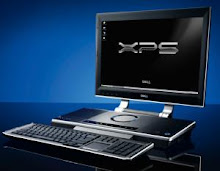 Over the last year or so, Intel has been quietly working behind the scenes taking a hard look at our brand structure and exploring ways to make it more rational and easier to understand. The fact of the matter is, we have a complex structure with too many platform brands, product names, and product brands, and we've made things confusing for consumers and IT buyers in the process.
Over the last year or so, Intel has been quietly working behind the scenes taking a hard look at our brand structure and exploring ways to make it more rational and easier to understand. The fact of the matter is, we have a complex structure with too many platform brands, product names, and product brands, and we've made things confusing for consumers and IT buyers in the process.
All that is about to change. Or at least, we begin a process of change that will evolve over time. Here's what to expect:
1) First and foremost we've created a structure that leads with Intel. It seems simple, but we've lost some of this connection and we need to remind people who we are and what we make possible. This is the backdrop for our latest ad campaign, Sponsors of Tommorrow. As Silicon Valley historian and author Michael Malone recently wrote, "...what happens upstream in the world of chips sets the pace for everything that happens downstream in computers, smart phones, videogames, servers and, ultimately, in social networks, Google, Twitter, Facebook, etc."
2) Secondly, we are focusing our strategy around a primary 'hero' client brand which is Intel® Core™. Today the Intel Core brand has a mind boggling array of derivatives (such as Core™2 Duo and Core 2 Quad, etc). Over time those will go away and in its place will be a simplified family of Core processors spanning multiple levels: Intel® Core™ i3 processor, Intel® Core™ i5 processor, and Intel® Core™ i7 processors. Core i3 and Core i5 are new modifiers and join the previously announced Intel Core i7 to round out the family structure. It is important to note that these are not brands but modifiers to the Intel Core brand that signal different features and benefits. For example, upcoming processors such as Lynnfield (desktop) will carry the Intel Core brand, but will be available as either Intel Core i5 or Intel Core i7 depending upon the feature set and capability. Clarksfield (mobile) will have the Intel Core i7 name.
So the key here is there will be a range of features and capabilities within the Intel Core family - our flagship brand representing the highest performance and the latest technology - but simplified into entry-level (Intel Core i3), mid-level (Intel Core i5), and high-level (Intel Core i7). We will still have Celeron for entry-level computing at affordable price points, Pentium for basic computing, and of course the Intel® Atom™ processor for all these new devices ranging from netbooks to smartphones. For PC purchasing, think in terms of good-better-best with Celeron being good, Pentium better, and the Intel Core family representing the best we have to offer.
3) Lastly, we are changing and transitioning some of the platform brands. Intel vPro technology continues to stand for best in class security and manageability and will henceforth be paired with Intel Core in either Core i5 or Core i7 iterations. Again this wont happen overnight, but beginning next year Intel business client systems will carry either the Intel Core i7 vPro processor or the Intel Core i5 vPro processor name. With this focus on Intel Core, the Centrino processor technology brand will be retired for PCs beginning next year. However, Centrino has tremendous equity as a wireless technology, so we will transition the name to our Wi-Fi and WiMAX products beginning in 2010.

No comments:
Post a Comment